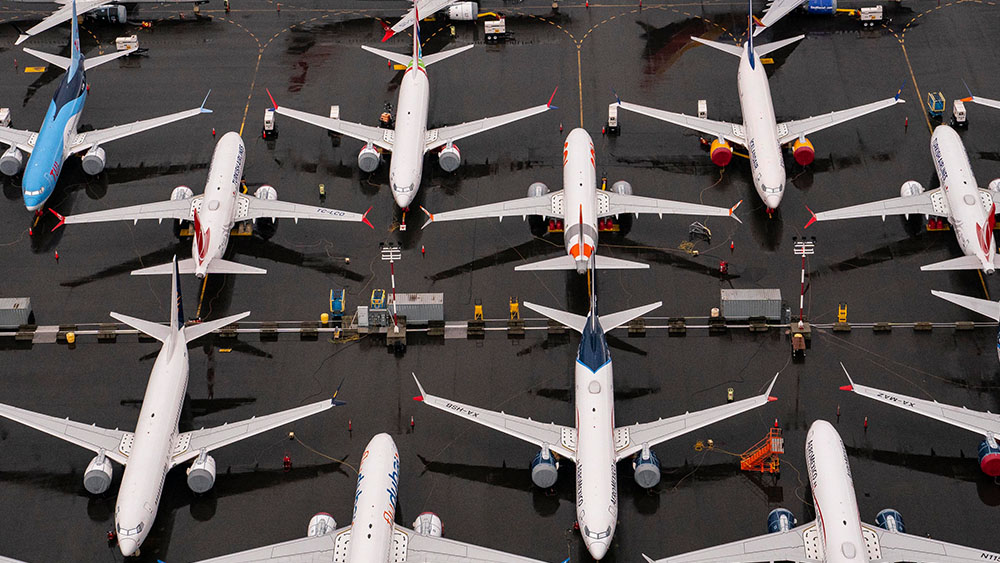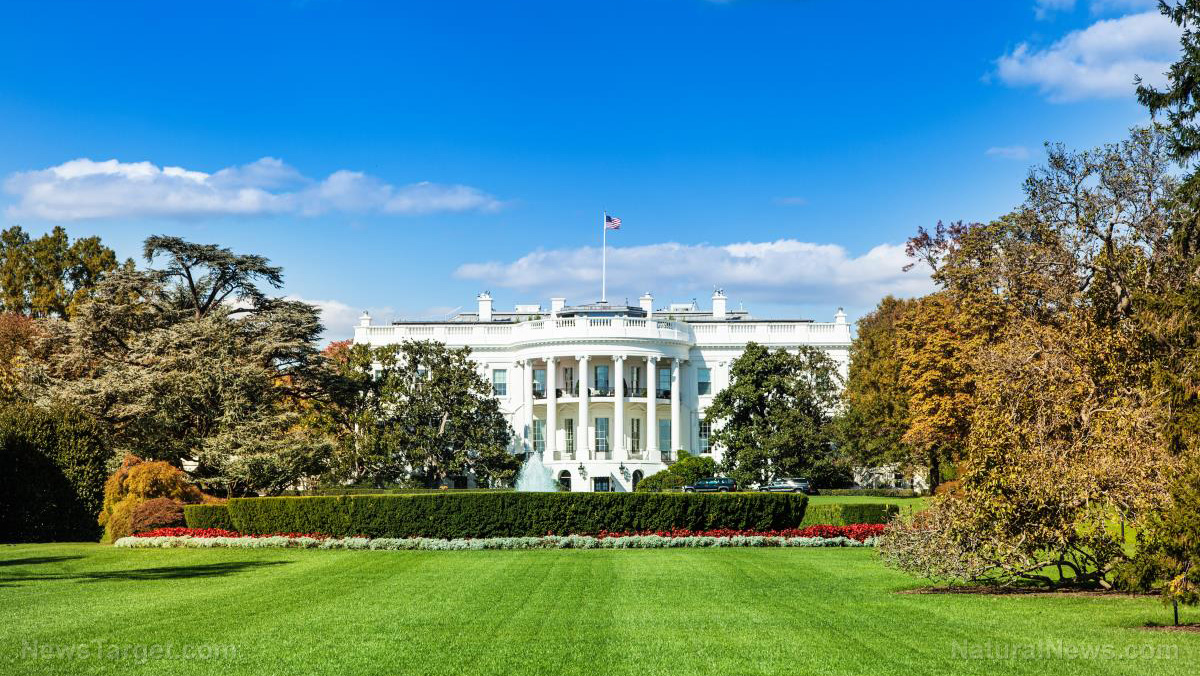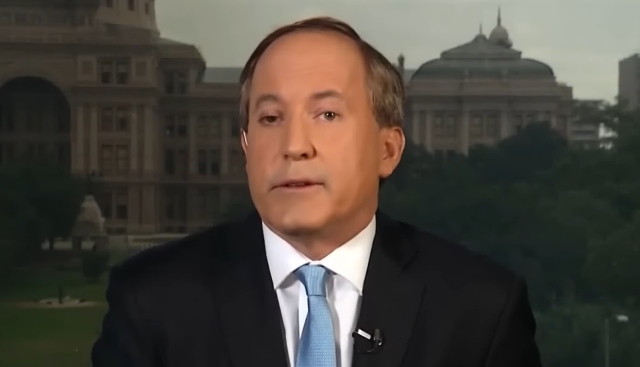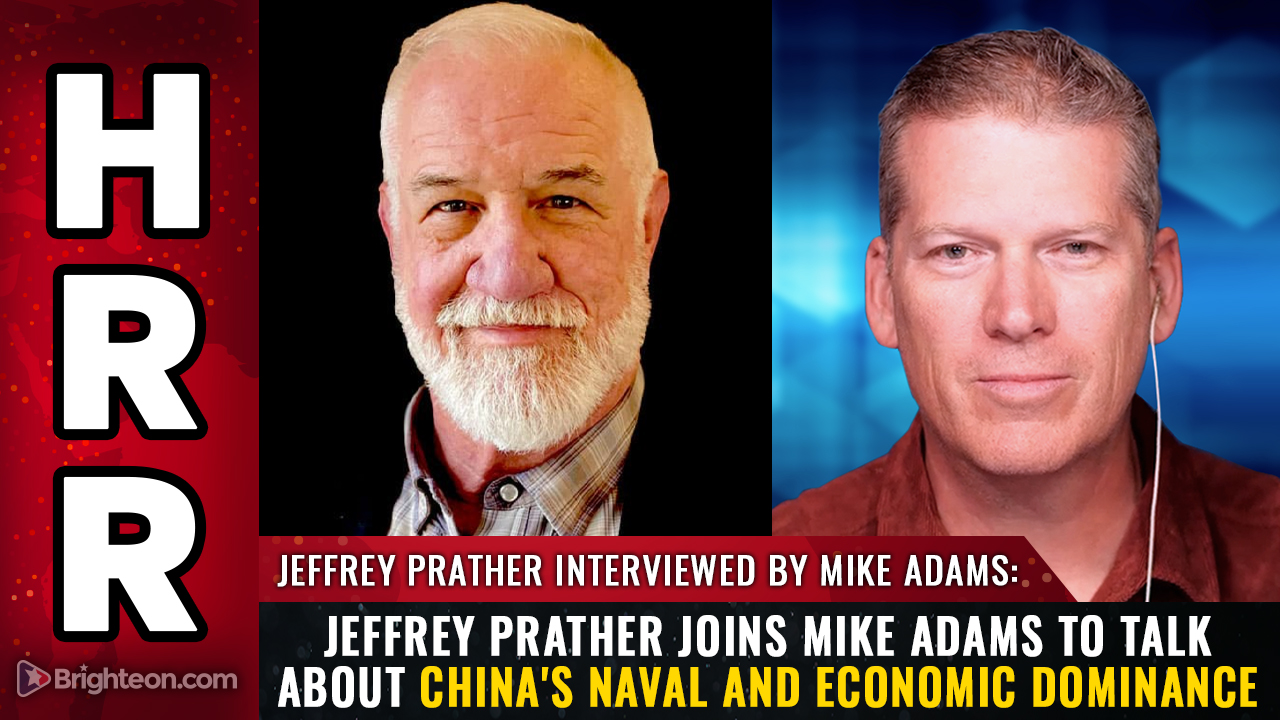Trump’s tariff shift sends shockwaves through air cargo, threatening $22B in revenue
04/23/2025 / By Willow Tohi

- Starting May 2, the U.S. will impose a 145% duty on Chinese imports and eliminate tariff-free access for low-value items, disrupting global supply chains, reducing air cargo revenue and forcing a major overhaul of cross-border e-commerce models.
- The collapse of the de minimis exemption and the new tariffs are expected to drain over $22 billion from air cargo revenue over three years. This threatens the viability of platforms like Temu and Shein, which rely on low-cost, direct shipments to U.S. consumers.
- Tens of thousands of small e-tailers using China-based suppliers face closure due to cost hikes. Airlines and freight forwarders are also experiencing slumping demand. Customs brokerage costs are set to increase significantly, and logistics providers are shifting to more costly “B2B2C” fulfillment models.
- Tech giants like Apple, Microsoft and Intel received exemptions for high-value electronics, shielding them from immediate chaos. However, tensions remain as China’s new chip origin rules impact U.S. competitiveness. Companies are diversifying operations, with Apple expanding in India and Luxshare planning U.S. growth.
- The policies reflect a broader U.S. strategy of economic nationalism, aiming to counter China’s economic influence. While the U.S. hopes for long-term gains, the immediate costs include disrupted supply chains, increased prices and potential losses for small businesses.
Starting May 2, stringent new U.S. trade policies targeting shipments from China—most notably a 145% duty on imported goods and the end of tariff-free access for low-value items — will disrupt global supply chains, slash air cargo revenue and force a dramatic overhaul of cross-border e-commerce models. The White House’s move, framed as a counter to Chinese economic aggression and illicit goods like opioid fentanyl, will punish companies from Apple to Temu, realign supply chains and reshape trans-Pacific trade flows.
$22B revenue drop foreseen as e-commerce models collapse
The collapse of the deminimis exemption — which waived duties on shipments under 800 — combined with the 145% tariffs, threatens to drain over $22 billion from air cargo revenue over three years, according to Seattle-based logistics consultancy Cirrus Global Advisors. The shift spells existential risk for online platforms such as Temu and Shein, which have relied on low-cost, direct shipments to U.S. consumers.
“Without de minimis, China’s D2C [direct-to-consumer] model is dead,” said Derek Lossing, Cirrus’ founder. His firm projects China-U.S. air cargo revenue will dive over 30% as e-commerce volumes plummet and freight rates stagnate. Platforms like Temu and Shein, which fueled much of the air freight growth over two years, have already raised prices and slashed marketing budgets ahead of the May deadline. Lossing noted that even with lower freight costs, small sellers cannot compete amid higher tariffs, pushing buyers toward nations like Vietnam.
The economic ripple effects are stark. A National Foreign Trade Council analysis found compliance costs for a typical 50 package could jump to over 50 — including brokerage fees, tariffs and processing charges — doubling delivery expenses. Logistics firm Portless CEO Izzy Rosenzweig’s optimism about Shein’s margins proved premature, as intra-state consumer resistance to providing sensitive data for customs declarations could deter online purchases entirely.
Small sellers and airlines face existential threat
Tens of thousands of small e-tailers using China-based suppliers are at risk of disappearance, while airlines like Atlas Air and freight forwarders such as Apex Logistics confront slumping demand. “Many won’t survive the cost hikes,” Lossing said, emphasizing the lack of resources for customs compliance among micro-businesses.
The burden extends to logistics providers: customs brokerage costs per package will leap from
0.10 to 3 as shipments transition from fast-track de minimis processing to formal entries. Federal Express has already raised airfreight rates on China routes by $0.45 per pound due to last-minute clearance rushes. ShipHero CEO Aaron Rubin warned the added friction could force shift to “B2B2C” fulfillment models, where goods are stored in U.S. warehouses—a costly adjustment for SMEs accustomed to just-in-time, direct fulfillment.
Tech exemption shields major firms, sparks supply chain shifts
In a late pivot, the Trump administration granted tech giants Apple, Microsoft and Intel exemptions for high-value electronics, averting chaos for devices such as iPhones and computer chips. The move, hailed by the White House as a step toward U.S. manufacturing “onshoring,” reflects geopolitical calculus: severing China’s tech dominance while shielding U.S. tech pillars.
Yet even within tech, tensions simmer. China’s new rule classifying chips’ origin as their foreign fabrication site—effectively shielding Taiwan-made semiconductors but penalizing U.S.-manufactured chips—jeopardizes Intel’s competitiveness. Luxshare, a new iPhone supplier, plans to expand U.S. operations, mirroring Apple’s broader diversification into India, where iPhone assembly output jumped $22 billion in fiscal 2024.
U.S. eyes long-term economic nationalism
The policies echo past U.S.-China trade clashes, notably Trump’s 2018 tariffs, but on a grander scale. Airlines face repurposing freighters from trans-Pacific routes to elsewhere amid falling demand, while e-commerce platforms pivot to resilience—Temu aims to fulfill 80% of U.S. orders from domestic warehouses by midyear.
The broader stakes are existential. Cirrus warns Europe’s proposed $170 de minimis cutoff and customs fees could amplify losses. Meanwhile, China’s countermeasures — including intensifying AI investment by Alibaba and DeepSeek — frame the dispute as a high-stakes economic war.
For now, the U.S. gambles that pain today breeds long-term economic nationalism. But as small sellers close, supply chains rewire and tech firms juggle onshoring ambitions, the costs of a drawn-out trade war remain incalculable.
A decade of shifting trade dynamics
The de minimis exemption dates to the 1990s, easing imports of low-cost goods. Post-2018, the Trump era imposed selective tariffs on industrial and tech goods, but the current measures mark a first-time ban on exempting small-quantity consumer goods. Analysts compare it to the “ini-China” investor exodus of 2020, another inflection point in relations.
With tariffs now set to reshape retail, logistics and geopolitics, the world watches whether enterprise can adapt — or if the U.S. Silk Road finally unravels.
Sources include:
Submit a correction >>
Tagged Under:
air cargo, big government, Bubble, China, Collapse, debt bomb, debt collapse, Donald Trump, economic nationalism, economic riot, finance riot, market crash, money supply, national security, risk, supply chain, White House
This article may contain statements that reflect the opinion of the author
Get independent news alerts on natural cures, food lab tests, cannabis medicine, science, robotics, drones, privacy and more from NewsTarget.com
Get independent news alerts on natural cures, food lab tests, cannabis medicine, science, robotics, drones, privacy and more from NewsTarget.com
RECENT NEWS & ARTICLES
COPYRIGHT © 2017 DEBT COLLAPSE NEWS




















